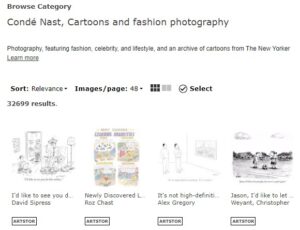
City Tech’s Ursula Schwerin Library houses our university’s physical institutional archives. We maintain a collection of historical materials from City Tech and its previous permutations as an educational institution: the New York Trade School, Voorhees Technical Institute, and the New York City Community College. Materials in the archive include student records, administrative memos, correspondence, yearbooks, photographs, videocassettes, ephemera, and regalia. The Vogel Ophthalmology Collection is also housed in the archives.
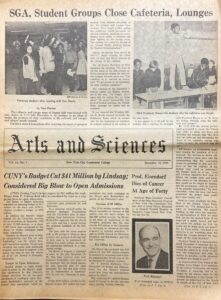
This list of material doesn’t accurately capture how unique a place the archives truly is. In addition to technical equipment from courses in heating installation and technical drafting, we also have materials that capture social and political events on campus like our collection of student newspapers which highlight the power of student organizing and collaboration. In the 1960s, student groups like the Modern Jazz Club hosted concerts and events that modern music lovers would pay dearly to see – legends like Nina Simone performed in the former Klitgord Auditorium (students paid as little as $1.50!). Shirley Chisholm, a CUNY Brooklyn College alumna and the first Black female Presidential candidate, gave what was surely a rousing speech on our campus.
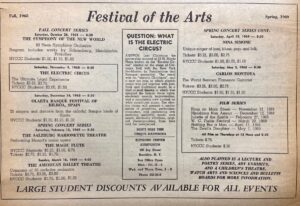
Each time I receive a request from a researcher, family member hoping to find evidence of their relative’s time here on campus, or former student seeking information on a class on their transcript I am carried back through time. Flipping through our collection of materials – photographs of old Brooklyn and campus life in the 70s, course materials from the 90s, newspapers spanning decades, committee agendas and meeting minutes – is transformative. I am always so pleased when I am able to find a yearbook photo or course description to help the person in need. And I am never happier then when I come across evidence that a notable historical figure once stalked these familiar halls.
Fun tidbits of City Tech history will be featured in the monthly City Tech Communications Newsletter. To find out more about what’s in our – your – archival collection, schedule a visit. Perhaps you’ll uncover the perfect piece to be featured next?
To arrange a visit, consult our visitation policy and complete the Archives Use Form. And check out our library research guide for additional information.

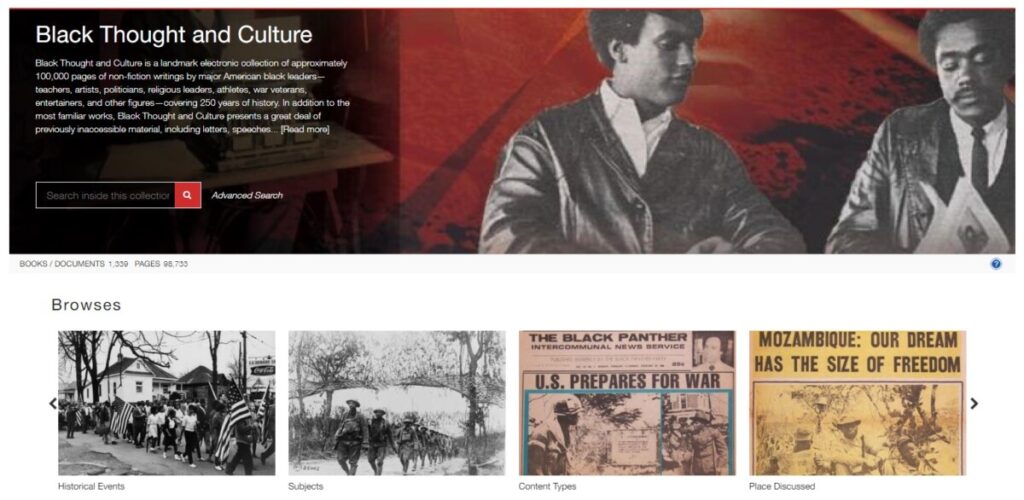
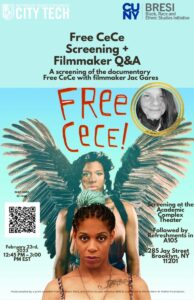
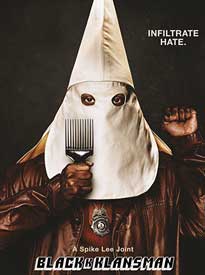
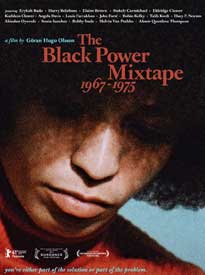

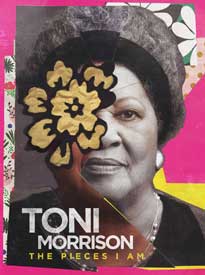
 Jen Hoyer, Instructor, Technical Services and Electronic Resources Librarian published “Redesigning Program Assessment for Teaching with Primary Sources: Understanding the Impacts of Our Work” in American Archivist, the premiere journal in the specialty of archives. Her article is
Jen Hoyer, Instructor, Technical Services and Electronic Resources Librarian published “Redesigning Program Assessment for Teaching with Primary Sources: Understanding the Impacts of Our Work” in American Archivist, the premiere journal in the specialty of archives. Her article is 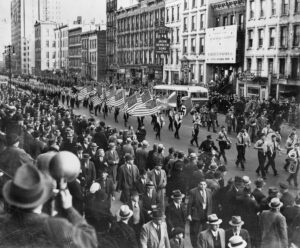
 Scholarship for the Public Good: Paths to Open Access Online
Scholarship for the Public Good: Paths to Open Access Online